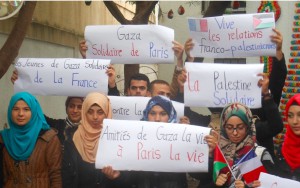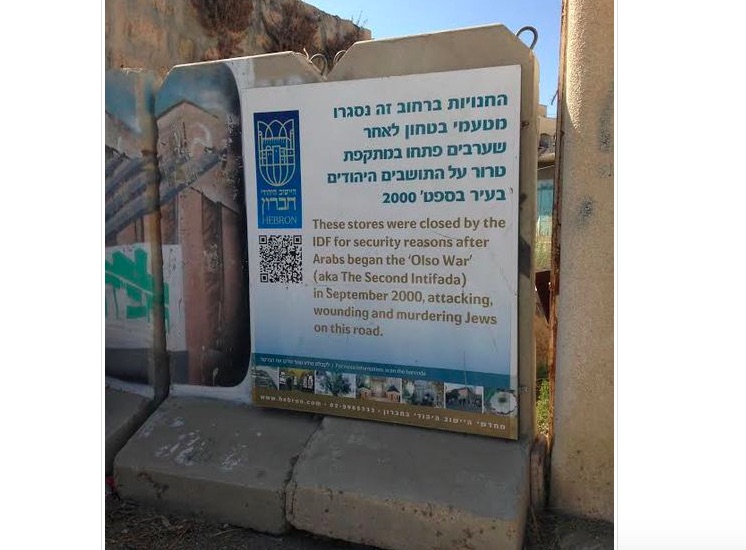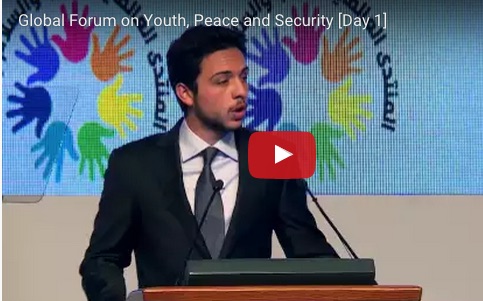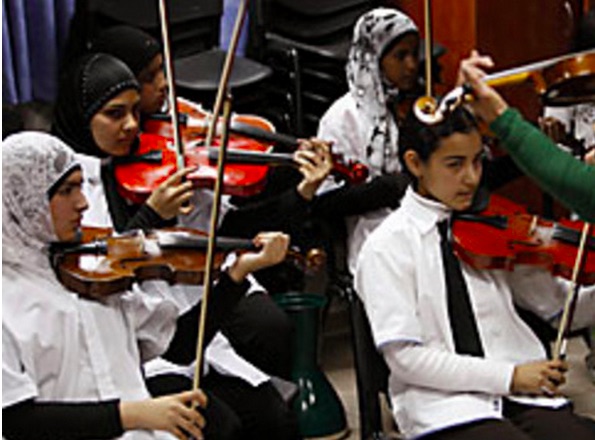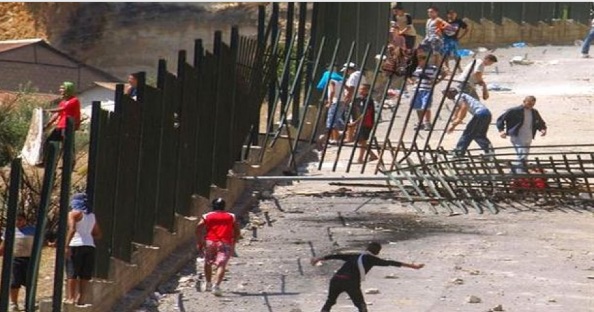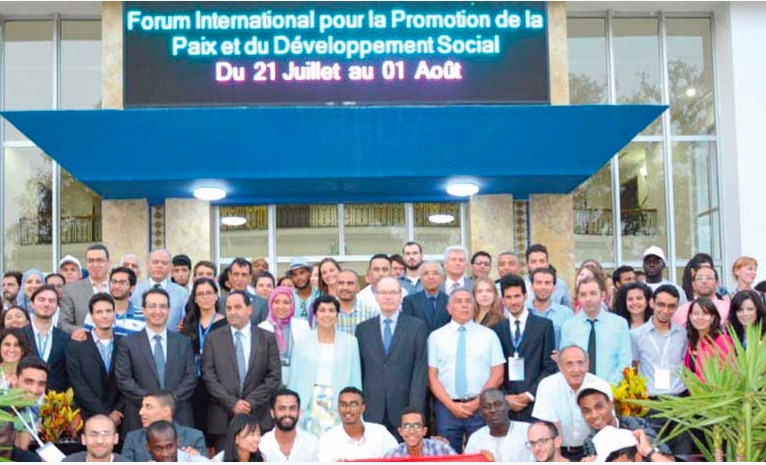. DEMOCRATIC PARTICIPATION .
An article by Mounira El Bouti, Liberte Algerie
I take a step back and with a sweep of the left hand, I push aside my hair and start to write this article. With every gesture, every thought, every breath I am inspired to think of the Tunisian blood flowing in my veins, mixed with Algerian blood, but I’ve told you that before …
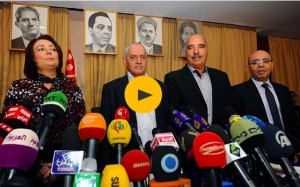
Video of Nobel Prize award
This blood makes me proud to belong to two countries whose great history and peoples can only make you proud.
It was just an hour ago that I heard the big news: the Nobel Peace Prize was awarded to the quartet sponsoring the national dialogue in Tunisia. And, like a cherry on the cake, there was a woman among them, the President of the Tunisian patronnât, Mrs Ouided Bouchemaoui. You don’t have to be a feminist to focus on this; it is enough just to be a woman . .
I have long written that women’s leadership is strong because of its value of consensus and its leadership by thoughtful dialogue which allows organizations to overcome the most difficult crises. Now here is the proof: evidence from Tunisia that confirms my research and responds to my detractors
So back to the events marking this day, not a week, not the century …
It’s an historic first: the 2015 Nobel Prize for Peace is awarded to Tunisia! What an amazing year! We’ve seen everything: promulgation of the first qualified democratic constitution in the Arab-Muslim world, election of a president by democratic and transparent means, the terrorist attacks on the Bardo museum aimed against Tunisia’s culture and history, and the bombing of the tourist center at Sousse aimed at the main sources of revenue of the country. Despite the attacks, neither history nor culture nor tourism have been affected.
Tunisia in crisis, shows us the way forward ..
In Chinese calligraphy, the word “crisis” has two ideograms. The first character means “danger,” and the second “opportunity.” This is right, because a crisis brings with it not only risks but also opportunities. When an organization is in crisis, the way it overcomes it, or even seizes opportunities, depends on the intelligence and competence of its management.
The crisis weighs heavily on Tunisia, but at the same time they show the world that their resistance is still there. They still have hope and creativity. Even in times of crisis, they can be awarded prizes. It all depends on our level of consciousness and our way of seeing things. If we believe in change, it will come ..
So.it’s a good example, praised by François Hollande, the French president, David Cameron, the British Prime Minister and hailed by millions of participants in social media.
(Article continued on right side of this page)
(Click here for the original article in French.)
Latest Discussion
The Arab Spring, Can Tunisia continue the momentum they started?
(Article continued from left side of this page)
But what does this prize really mean?
For me, this award is a strong and profound message of hope and a reminder of the poem by Abu Al Kasseem Echebi: ‘When the people one day want life, the force of fate is in their favor …”
Sometimes the force of fate responds very strongly, like today. After an attempted assassination of a known personality in Tunisia namely Charfeddine Ridha, chairman of the Etoile Sportive du Sahel, as well as the deputy from the ruling party, Nidaa Tounes, who narrowly escape from his car riddled with 30 bullets 30, is this not the force of fate?
This is a fate that protects, promises and reassures. I do not know what star it is that watches over Tunisia, but it is a good star. We have avoided the worst and we are all as excited as children on the eve of the school year to watch the news, the reactions of celebrities and the updates our news from FB and Twitter ..
Let me tell you the story of the dialogue that led to the prize. .
The Tunisian National Dialogue is a quartet which includes four groups: the Tunisian General Labor Union; the Tunisian Confederation of Industry, Trade and Handicrafts; the Tunisian Order of Lawyers; and the Tunisian Human Rights League.
Formed in the summer of 2013, at a time when the democratization process was in danger because of political killings and widespread social unrest, the quartet organized a long and difficult national dialogue between the Islamists and their opponents, getting them to agree to escape from an institutional paralysis.
This dialogue managed to avoid the worst in Tunisia which bordered on civil war, especially after the assassination of Chokri Belaid, Mohamed Brahmi, and the ambush of young soldiers at Mount Chaambi.
Here is one more reason to continue believing and dreaming and never lose hope. To love a person is to believe in her or him, even in the most difficult times and it’s the same thing to love a country. As I wrote you in my last note, the joy of life bursts forth, the desire for love is always there, as long as we believe ..
For me, this is not the Nobel Prize of peace but of hope and of love, lots of love in the heart and in the hands, the hands that have constructed liberty and that continue to work for change in the face of the opposing winds and tides …
I thank all of you who have come to support us, who have kept your promise to visit Tunisia. Thank you from my heart. Today I ask you to congratulate us, to be happy for us, to share our enthusiasm and to cultivate our growing hope.
Someday the prize should be awarded to all the peoples who aspire to freedom, to Palestine divided and bruised, to Syria agonizing, to Algeria lost between two shores, to the Gulf countries, anesthetized by money and the making of war, to Libya stolen, to Egypt sold out. These peoples also, despite appearances and despite oppression, should also have the right to feel joy, to be honored and to be thanked.
Before taking the last sip of my coffee that burns my mouth but has no effect, as I bubble with joy and pride, I ask you to congratulate us, praise us, envy us! This is not the world cup of football. This is not a scientific discovery. This is not winning the lottery, It’s even better: it’s the Nobel Prize …
One last thing, as always in times of crisis, we must prepare for a rain of criticism and comments from the kill-joys and the envious. The consequences will be heavy because this prize is indeed a great slap in the face to all the dictators in the Arab world.
